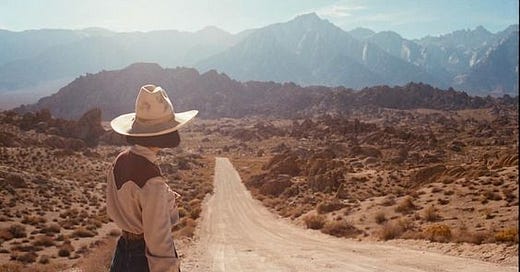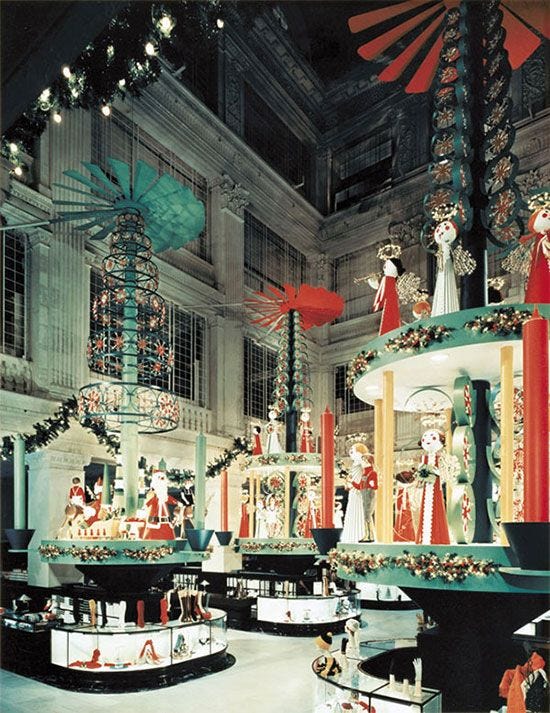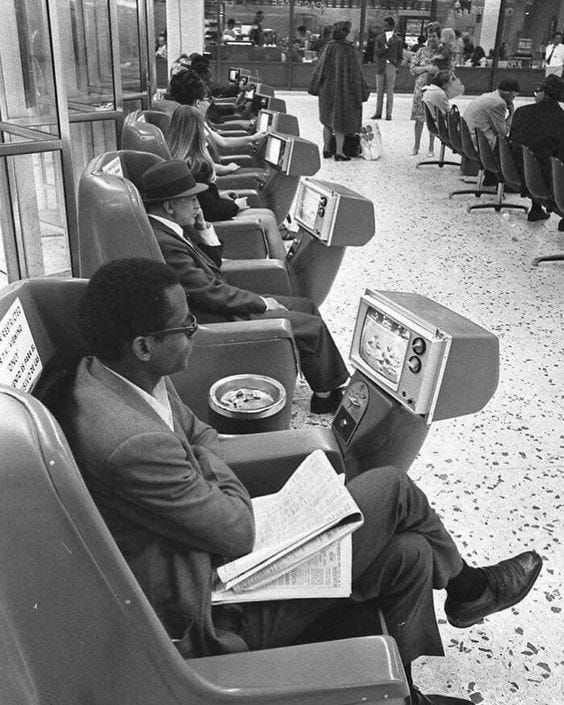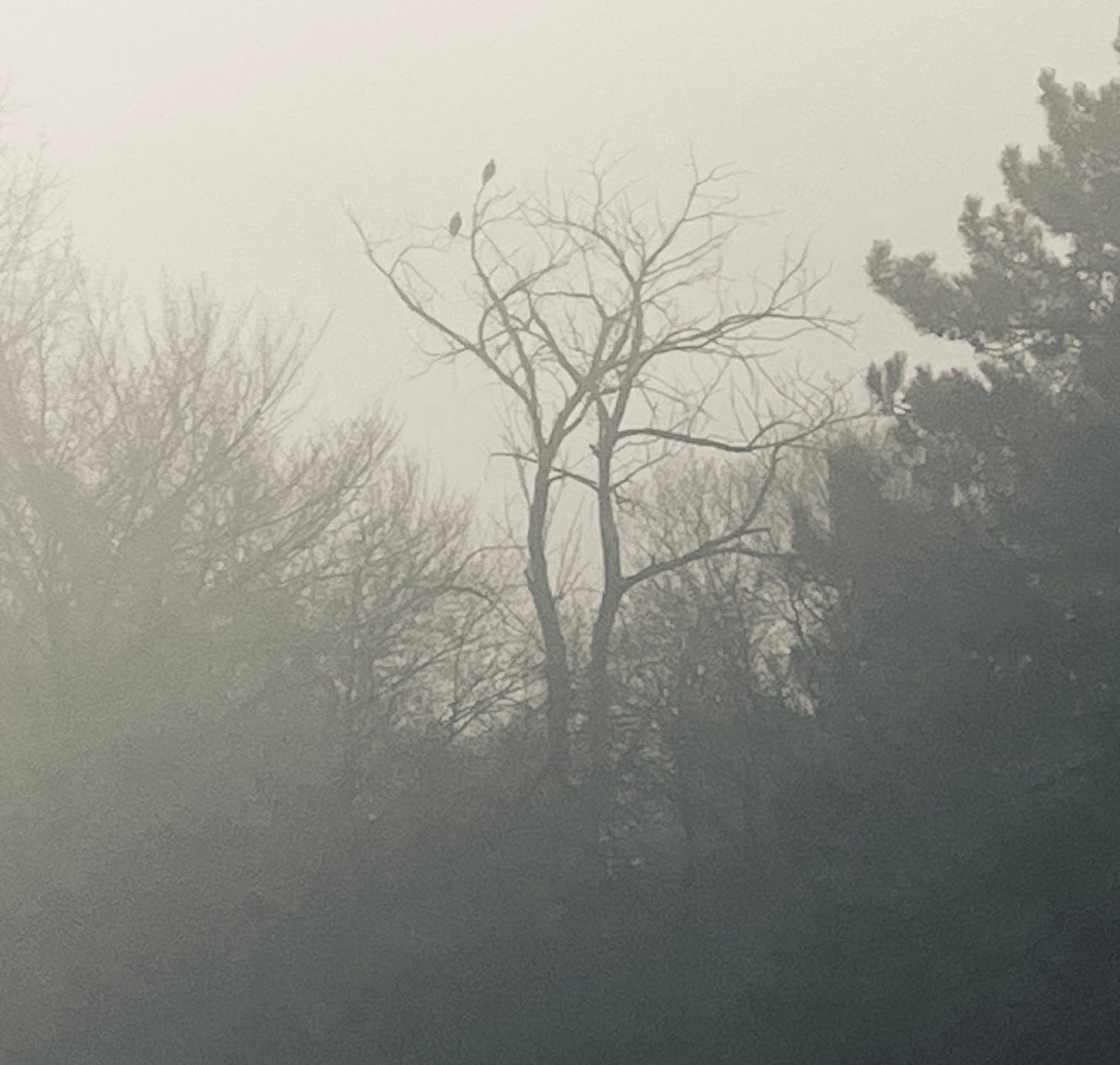There’s a certain sweeping grayness to November that has the idle mind reeling in a depressive state at the impending months of darkness and cold. But there comes a punctuation to it, a pinhole in the black construction paper: Christmas and its frothy-eyed, inebriated roommate New Year’s when sparkles and glittering technicolor Rudolphs and tinseled trees made up like the colors of the rainbow devoid of the religious to celebrate the season of Joy! and Good Cheer! For what or why we should drown neck-deep in Merry! is lost under a pile of re-gifted novelty socks, tea towels, and plastic gift cards.
This isn’t an essay about Christmas. It isn’t about the culture wars or pumpkin spice lattes or whether real trees or artificial is the superior amulet under which to keep presents. I’m going to stray a little bit: This is about everything in-between. It’s about the gray. It’s about the sharp, cold air that bites the inside of your lungs when you breathe the fresh air of a northern plains January — the pain that makes you suddenly aware that you breathe. That we exist in the world as beings with the capacity for life because of necessary, automatic functions: breathing, eating, and sleeping. But more and more, the daily goings-on of everyday life are squeezed into unconscious functions rather than the purposeful.
We herd ourselves into the masses of automatic response. In doing so, we face this duality: soothing benignity into a temperate line of unthinking and unfeeling so as not to feel too much pain (even the pain of breathing that reminds us we are indeed still alive), and not too much joy. That is the tradeoff. Establishing our favor for flavorless gruel requires an ever more outrageous stimulus to shake us from our waking slumber. The dialogue must be at screaming volume; the protests must involve blinding explosions; the optimism must be toothache-inducing sugary, sticky sweetness. Cotton candy that suffocates the mind. We satisfy the appetites to assuage hunger in the soul.
But we like it that way, or at least recognize nothing beyond what glows back into our blank stares. The Endless Scroll. The empty consumerism of substance-less screens in an information-saturated age. But what a contradiction! We have at our very fingertips an amount of information we never imagined, yet we have such a shallow understanding of what to do with it, how to navigate it, or what it could mean — it’s become meaningless to pursue our place within it.

How do we go about this search for the true, the good, and the beautiful in a world that shuns all three, or at least disconnects those things from our existence (and in doing so, severs any connection to a deeper meaning for ourselves as individuals, our place in relation to the eternal, and the very nature of our existence in the first place).
Look to those who took a pause in a mid-century America at the cusp of a great awakening of power but also the brink of a deep anesthesia of meaning and quietly went about the business of guiding the search even as we gobbled up a collective reductiveness handed down from an increasingly overbearing and overburdening intellectual class: the condescension from academia. Writer Tom Wolfe explained, “We live in an age in which ideas, important ideas, are worn like articles of fa
shion — and for precisely the same reason articles of fashion are worn, which is to make the wearer look better and to feel à la mode.”
Pursuing the mysteriousness of life will save us from the desolation and despair of it. Except to unclench our teeth from the stubbornness that we know for sure the settled science, have the humanist answers to the ancient enigma, and make believe there is no mystery. Look away. Ignore the chitter-gnawing at the fringes of your soul that makes you aware you have one — or are one. Accept the caterwauling insistence that we are intellectual treaders on a path to enlightenment found only by submitting to that doom scroll or the panting corner soap-box prophets from within the 65-inch glowing box yelling, “The end is near!” Your neighbor is your enemy, and your shallow, earthly, temporal existence defines your very being.
So…what?
The what is a furtive glance and see the despair. It’s people who want to be told the answer by the same eight experts on the same twelve websites and the same four teevee channels or told what to be outraged about even as we lose any perspective of what outrage really is (it’s everything this minute, something else twelve minutes from now). It’s avoiding the confrontation that inevitably comes when we stop and contemplate our purpose and find we do not know. That in our haste to accept that purpose comes from chewing pop culture bubble gum or mobs of stationary bicyclists breathing the rarified air of sweaty little clubs manned by cheerful, toothy white smiles who gladly take your membership dues, or televangelist tithes, or political donations, or university tuition…
Being over-medicated, over-exposed, over-sexed, and over-offended has left us underwhelmed and hollow. We’re offered myriad identities from which to choose and to pack meaning into our lives until we’re bursting at the seams with what we’re told will make us happy, yet we are not. So again, there is a firehose effect of blast-to-the-face cosmic spirituality, topical wellness salves, and holistic solutions. I am an activist, a feminist, a chest-feeding birthing person, liberator, oppressor, colonizer, victim, a tradwife, a modern woman. I am defined by one thousand words yet cannot find meaning in any of them.
How the late writer David Foster Wallace described it:
If you worship money and things — if they are where you tap real meaning in life — then you will never have enough. Never feel you have enough. It’s the truth. Worship your own body and beauty and sexual allure and you will always feel ugly, and when time and age start showing, you will die a million deaths before they finally plant you. On one level, we all know this stuff already — it’s been codified as myths, proverbs, clichés, bromides, epigrams, parables: the skeleton of every great story. The trick is keeping the truth up-front in daily consciousness. Worship power — you will feel weak and afraid, and you will need ever more power over others to keep the fear at bay. Worship your intellect, being seen as smart — you will end up feeling stupid, a fraud, always on the verge of being found out. And so on.
Meaning isn’t found in any of those things. Meaning is somewhere in the choice we make to accept the mysteriousness of the everyday. We have to find meaning in the person in an impersonal world. Percy, in a 1972 conversation with William F. Buckley, Jr. on his television show Firing Line discussed his oeuvre:
I made what to me was a great discovery. There's nothing new. It was discovered before that by Kierkegaard, namely that the scientific method cannot make a single statement about the individual man in so far as he's an individual. He can only describe a man in so far as he resembles other people, so science can say nothing, whatever about the individual man. So it suddenly occurred to me, how do you go about talking about the individual man? And finally, I came to realize that a novel could be approached as a very serious effort to an extension of science, if you will, a serious effort to explore the individual man, what I call the postmodern man, his predicament, his brain predicament, his particular historical predicament and do it in a very serious way.
My novels attempt to be an exploration of what it is to be a man living in a particular time in a particular place, and if you're talking about making him human, this is part of the exploration. I'm trying to explore what it is to be human, so what it is to live in a certain place at a certain time.
We avoid the search and everything it entails because to put a foot on the path is to admit that there is a search to be had, that we cannot be told the answer to the eternal question, and that there is something just outside the periphery and that to seek it will take effort, pain, and disappointment. We must admit that the earthly Eden we tried to create is superficial and unfulfilling because it is built for temporal satisfaction, not eternal meaning. Serving our basic appetites does not make us happy because it's not meant to. We are individuals outside of whatever definition is hoisted upon us. If we accept that we are only the summation of superficial definitions of identity, then we have no hope of finding meaning in our lives as individual beings, souls with hearts and minds, capable of reason and unreasonableness, and to cast off the hopelessness of the absurd.
In his 1985 book Amusing Ourselves to Death, author and cultural critic Neil Postman writes, “People will come to adore the technologies that undo their capacities to think… For in the end, he [Huxley] was trying to tell us what afflicted the people in Brave New World was not that they were laughing instead of thinking, but that they did not know what they were laughing about and why they had stopped thinking."
The meaningless pain of white guilt, intellectual fragility, religious timidity, and identity politics keeps us entertained and sufficiently outraged to distract and disorient us away from thinking about what makes us human at this moment in America.
The American Trappist monk (and friend of Percy) wrote in his bestselling 1948 autobiography The Seven Storey Mountain, “The more you try to avoid suffering, the more you suffer, because smaller and more insignificant things begin to torture you, in proportion to your fear of being hurt. The one who does most to avoid suffering is, in the end, the one who suffers most.”
Perhaps we have to engage with our suffering to recognize joy and to understand that being human might be to accept the mysteriousness of life. Engaging the suffering and the search for meaning, purpose, and the solitude of existing versus the beauty of living.
Percy writes in Lost in the Cosmos,
The difference between a non-suicide and an ex-suicide leaving the house for work, at eight o'clock on an ordinary morning:
The non-suicide is a little traveling suck of care, sucking care with him from the past and being sucked toward care in the future. His breath is high in his chest.
The ex-suicide opens his front door, sits down on the steps, and laughs. Since he has the option of being dead, he has nothing to lose by being alive. It is good to be alive. He goes to work because he doesn't have to.
I can’t pretend to know what the cure is for what Percy called the malaise. Maybe that’s the point. Life is the search; the search is life. To live is always to be searching. I keep looking to the past as a rootedness from which I, as a wayfarer and a pilgrim, can go forth in faith that I will never find the answer to the question, to be or not to be — because the point is never to stop searching. It is a choice I must make every day.
"A man must live by his lights and do what little he can and do it as best as he can. In this world goodness is destined to be defeated. But a man must go down fighting. That is the victory."
—Walker Percy
I believe this now more than ever.








Great Essay!!! We're becoming robots unconnected to the real world and other human beings...
Jenna,
Your essay is like a very large old tree with multiple branches & deep gnarly roots — each branch & root leading to another & another bewildering mystery of life. Your intriguing research & abilities to take your readers on a thought provoking journey is utterly unique. When I grow up I would like to be able to write half as well as you. Thank you & may the gray in your winter be brighter than usual.